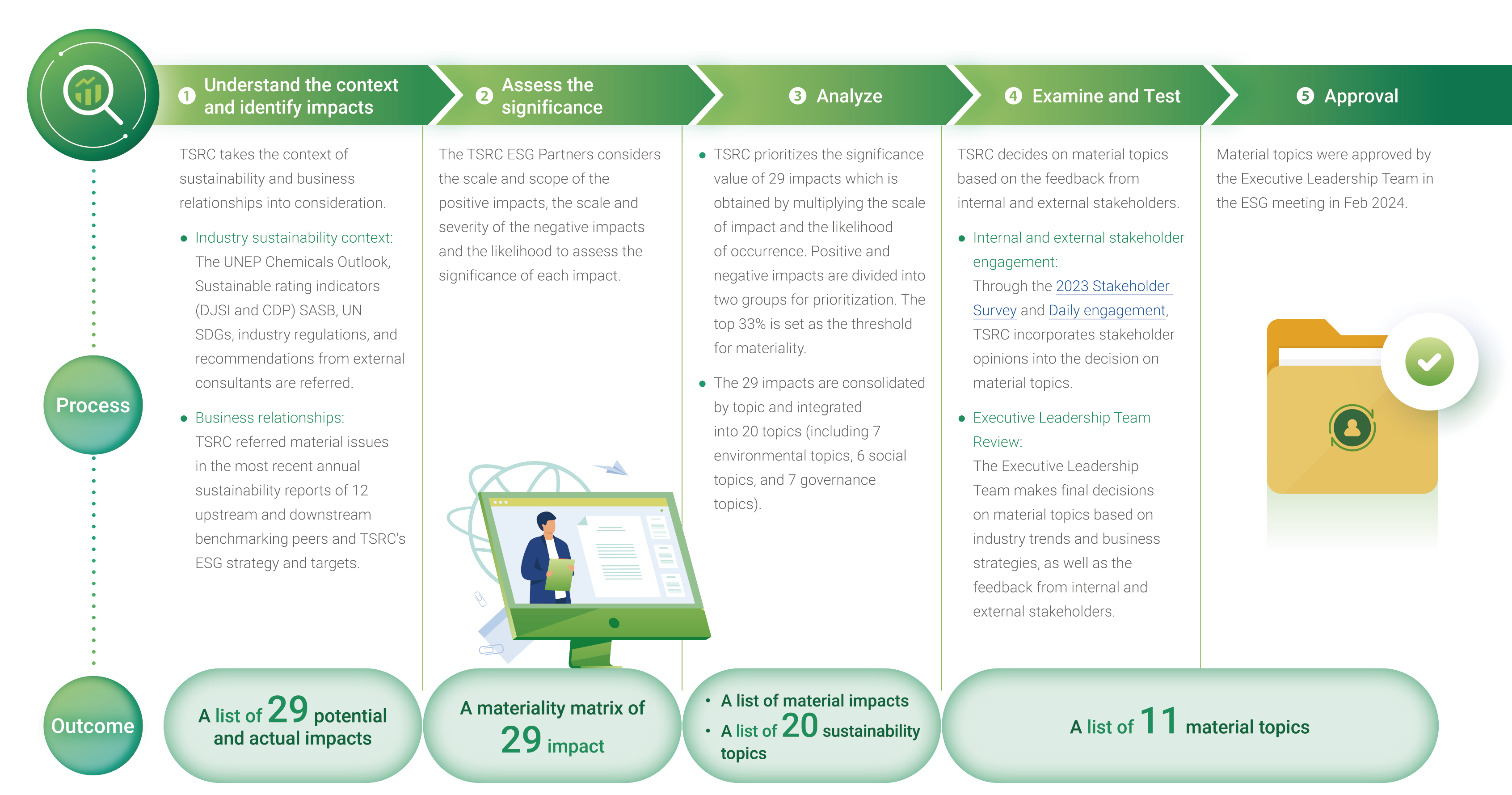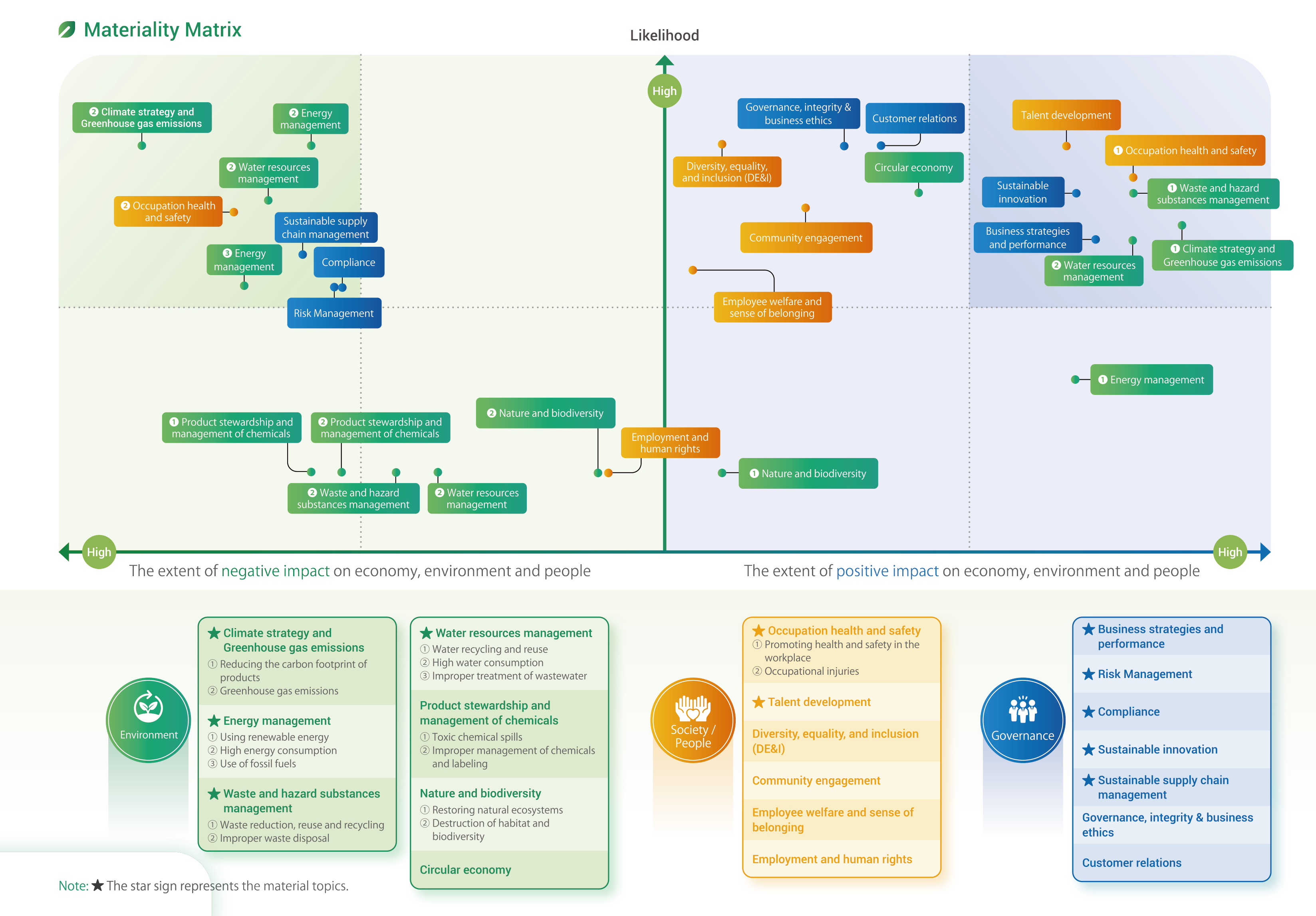We pay a higher attention to what our stakeholders care and take necessary actions to improve or enhance it after evaluating the materiality .
Material Topics
We follow the GRI standard to analyze and identify material topics and review the actual and potential impact of our daily operations on the economy, environmental, and society/people to keep optimizing TSRC's ESG performance, and track and minimize impacts and influences.
29 potential and actual impacts were identified, with reference to the UNEP Chemicals Outlook, DJSI, SASB, United Nations Sustainable Development Goals, and stakeholder expectations, and evaluated based on the impact and probability on TSRC.
Finally, we identified 11 material topics after collecting the feedback and major concern from stakeholder and industry, including operation strategy and performance, compliance with laws and regulations, risk management, climate strategy and greenhouse gas emissions, energy management, water management, waste and hazardous materials management, and occupational health and safety.
The material topics were confirmed by TSRC's executive leadership team at the ESG meeting in Feb. 2024 and approved by the Board of Directors on May 7, 2024, along with a report on the implementation of the ESG strategies and targets. the Board oversees and monitors progress toward ESG goals, material actions, and the outcomes of stakeholder communications. Subsequently, the Board offers guidance for further improvement.

Material Topic Matrix
Material Topics & Actions